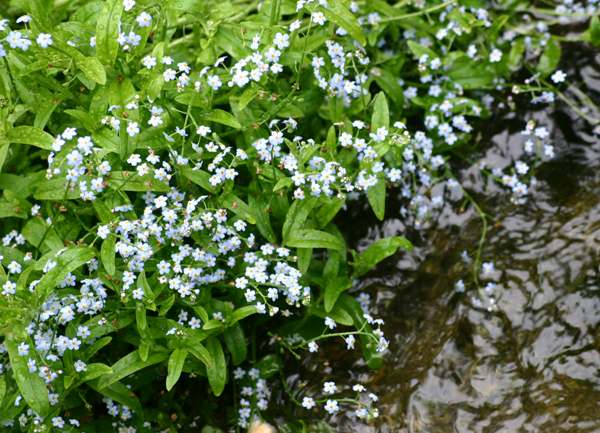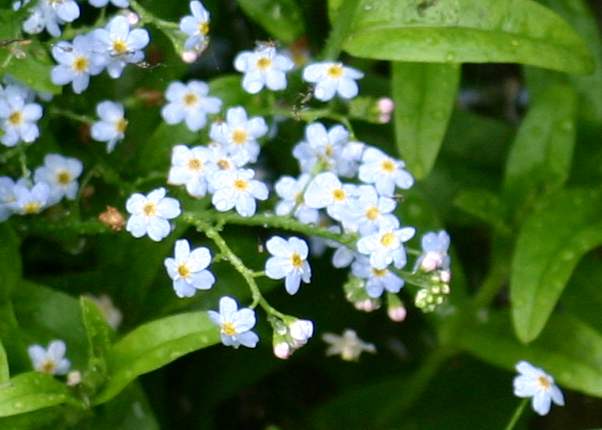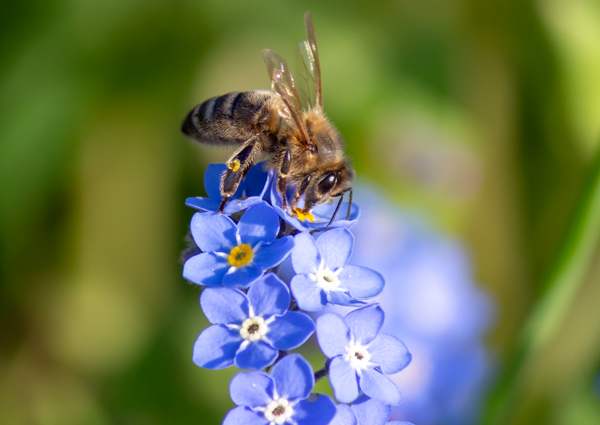Myosotis scorpioides - Water Forget-me-not
Phylum: Magnoliophyta - Class: Equisetopsida - Order: insertae sedis - Family: Boraginaceae

Description
The buds of this creeping marsh perennial turn from pink through sky blue to almost white as the blossoms develop.
Distribution
This plant is widespread and common throughout Britain and Ireland as well as many other parts of Europe.

Blooming times
Water Forget-me-not produces flowers from June to September in Britain and Ireland.
Habitat
A wildflower of wetlands and shallow waterbodies on either acid or alkaline soils, the colour of the Water Forget-me-not is largely determined by the acidity of its environment.
The plants shown above were seen beside the River Teifi in West Wales in July.
Similar species
There are several closely related species that share the same common name.
Other Myosotis species
In Europe, Asia, Australia and North America there are several dozen accepted species in the Myosotis genus, many of which occur in Britain and Ireland.
Bees and Forget-me-nots
Honey Bees collect pollen from Forget-me-not flowers as the picture below, kindly contributed by Diane Jones, demonstrates.

Sue Parker's latest ebook is a revised and enlarged edition of Wild Orchids in The Burren. Full details here...
Buy it for just £5.95 on Amazon...
Please Help Us: If you have found this information interesting and useful, please consider helping to keep First Nature online by making a small donation towards the web hosting and internet costs.
Any donations over and above the essential running costs will help support the conservation work of Plantlife, the Rivers Trust and charitable botanic gardens - as do author royalties and publisher proceeds from books by Pat and Sue.

